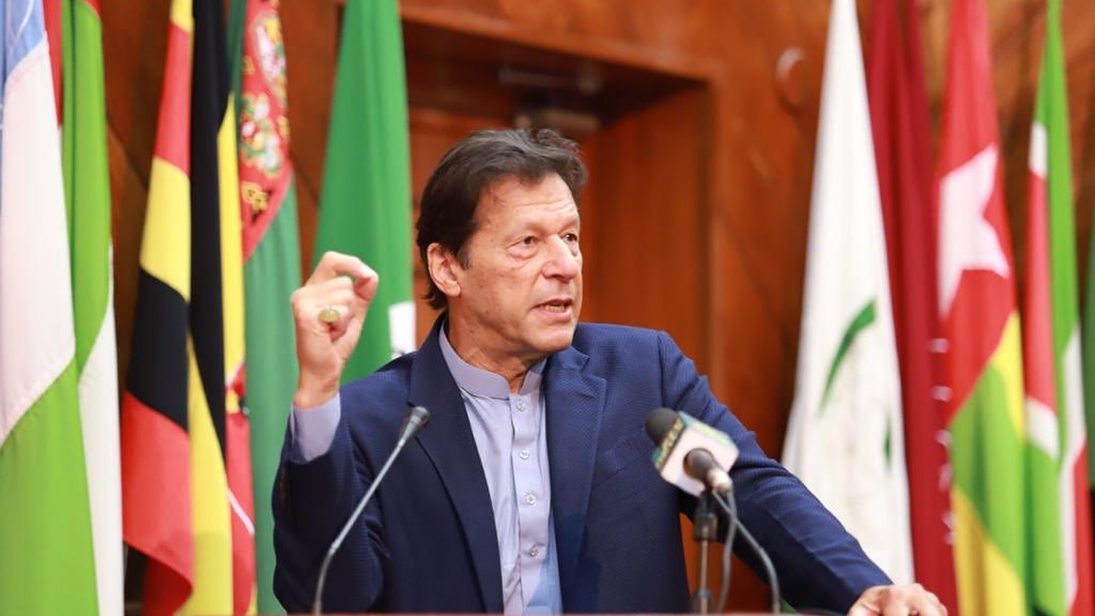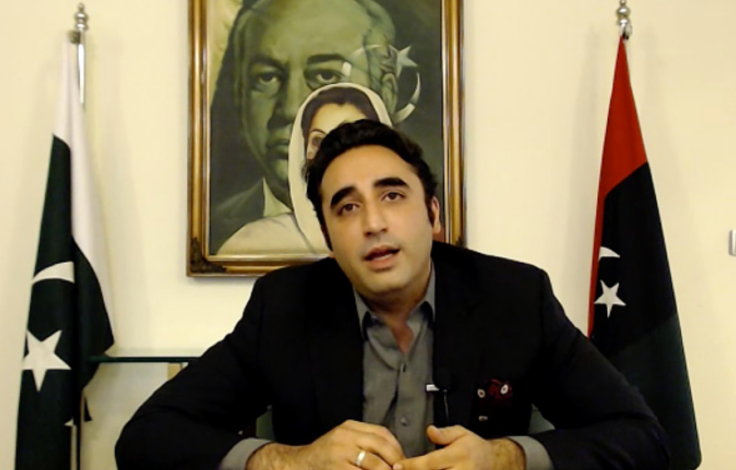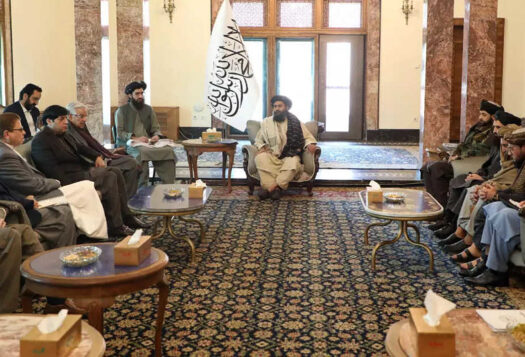
As of May 12, the number of COVID-19 cases in Pakistan has crossed 32,000 with the number of deaths reaching over 720. Last week, as the country reported the highest one day spike in cases, Prime Minister Imran Khan announced Pakistan would start lifting lockdown restrictions across the county. As the policy was announced with the consultation of all provincial governments, it is yet to be seen whether it will be able to create the long sought after national consensus on the pandemic response in Pakistan.
Since the beginning of the crisis, Pakistani leadership has remained divided on the scale and intensity of a lockdown. All provincial governments have implemented varying degree of lockdown against the wishes of the Prime Minister, who has been resistant to lockdowns due to the negative impact on the poor and daily wage earners. The administration eventually moved towards a nationwide partial lockdown, before announcing plans for a “smart” lockdown starting May 9, opening “low-risk” industries and enhancing tracking and tracing efforts. While the provincial governments have indicated plans to follow the direction from the center, rising cases and weeks of political confrontation between the Pakistan Peoples Party (PPP) and Imran Khan’s Pakistan Tehreek-i-Insaf (PTI), may pave the way for further domestic disputes as the country starts to reopen.
As the responsibility of giving a national policy falls on the federal government, a continued lack of coordination between federal and provincial governments and political strife between the ruling party and the PPP in Sindh threatens to damage Imran Khan’s reputation as a national leader in crisis time. Additionally, the thus far disconnected response effort risks further intensifying the health crisis and overwhelming Pakistan’s health infrastructure as cases continue to rise, in turn raising further questions and doubts over governance from the center.
COVID-19 Response from the Center
The current federal-provincial divide on the healthcare response is rooted in Pakistan’s administrative structure. After the passage of the 18th amendment in 2010, the provincial governments became responsible for managing their respective health sectors. Whereas the federal government holds the mandate over interprovincial coordination and broader health policy, among other responsibilities. As the COVID-19 response also requires cross-sector decision making on financial management, border control, and multiple other sectors under the federal government, it was essential to have a coordinated national policy.
As the responsibility of giving a national policy falls on the federal government, a continued lack of coordination between federal and provincial governments and political strife between the ruling party and the PPP in Sindh threatens to damage Imran Khan’s reputation as a national leader in crisis time.
The federal government response to the pandemic has evolved from denial to ambivalence, with Prime Minister Khan trying to downplay the issue in his first public address. While his concern for the poor was not out of place, Khan’s open denouncement of the lockdown policy appeared as a direct criticism to the PPP government in Sindh, which had begun closing off public spaces, markets, and public transport. Soon, however, the PTI-led provincial governments in Punjab and Khyber Pakhtunkhwa and the coalition government in Balochistan enforced partial lockdowns in their respective provinces, creating confusion and division among the public on whether or not to observe the lockdown.
The federal government’s efforts to build national unity were similarly disorganized. With mounting public pressure, a parliamentary session on COVID-19 was held on March 25. However, the Prime Minister further exacerbated political divisions by signing out after his initial address without listening to the views of opposition parties. The federal government also refused the opposition’s demand for calling meeting of Council of Common Interest (CCI) – the main body responsible for interprovincial harmony. Meanwhile, the PTI leadership continued its criticism of opposition parties, particularly the PPP in Sindh. Although Sindh was the first provincial government to respond to the crisis, it has been repeatedly singled out with accusations of ineffective crisis administration, fomenting division, and running a “mudslinging campaign” against the federal government.
As the Prime Minister gradually adopted a more proactive role, the federal government announced an economic relief fund worth USD $5.66 billion to support citizens and industries affected from pandemic, and launched a USD $595 million worth Preparedness and Response Plan, purchased testing kits and protective equipment for the hospitals and established new labs and makeshift hospitals. However, the politicization of the COVID-19 relief fund in Sindh exemplifies that coordination is the key to make these initiatives fruitful.

Political Contest in Sindh
As the national government has struggled to put together a unified and comprehensive response, a political conflict has started in Sindh where the PPP government has taken the lead in crisis response. Pakistan’s first positive case of COVID-19 was reported in Karachi in late February. In response, the Sindh provincial government was quick to close educational institutes and, after a spike in cases, moved from a partial to complete lockdown. Chief Minister of Sindh, Murad Ali Shah, has gained praise in his handling of the outbreak including the quick provincial response, early testing, and focus on the crisis as a public health emergency. Meanwhile PPP Chair Bilawal Bhutto Zardari has also played a more prominent leadership role, organizing the first multiparty virtual meeting on the issue, while also being critical of the federal government for mishandling early lockdown measures.
Shah has also criticized the federal government for giving “mixed signals” and has shown reluctance in following federal pressure to lift lockdown restrictions. Sindh differed from the center by not allowing congregational prayers in mosques during Ramadan – a measure Punjab and Balochistan later followed limiting congregation sizes to five. Similarly, the Sindh government has not welcomed the Prime Minister’s initiative to establishing a volunteer youth force for relief efforts, alleging that it will be composed of political party workers who should not be made part of government relief programs.
Political strife between the PTI and PPP leadership has already impacted response efforts to COVID-19. For instance, PTI leadership plans to challenge a Sindh government Emergency Relief Ordinance in the court, passed by the Sindh cabinet as a relief measure for the province, on the grounds that it intervenes in the federal government’s mandate. The Sindh government has also reportedly faced challenges importing testing kits due to delayed response from Islamabad. As the two governments continue challenging each other’s policy imperatives, the piecemeal implementations of such efforts are unlikely to produce any effective results against the pandemic, further worsening the healthcare governance in the region and creating grievances over how the crisis is being handled.
As the two governments continue challenging each other’s policy imperatives, the piecemeal implementations of such efforts are unlikely to produce any effective results against the pandemic, further worsening the healthcare governance in the region and creating grievances over how the crisis is being handled.
The lack of coordination between the federal and provincial government in Sindh has also taken a heavy toll on Karachi. Although the PPP leads the Sindh provincial government, the PTI has a strong following in Karachi – winning 13 of its 21 National Assembly seats in the 2018 elections. As a COVID-19 hotspot and Pakistan’s most populous city, any efforts to curb the spread of the virus are futile unless implemented effectively in Karachi. Yet the PTI-PPP political fallout is creating a rift in the city, causing confusion and challenges enforcing the provincial lockdown orders. The political instability in one of Pakistan’s main economic centers is further detrimental to already failing economy of Pakistan, weakening efforts of the federal government to revamp investors’ confidence.
The Way Forward for the PTI
The handling of the COVID-19 crisis has not reflected well on the Khan administration. While provinces are autonomous in making decisions about healthcare management, the federal government is responsible for building a coordinated national action plan. Failure in formulating and implementing such a plan is likely to weaken the federal government in the long run, casting doubt over Imran Khan’s leadership in times of crisis.
Since the crisis has not yet hit its peak in Pakistan, the PTI still has time to build a more coordinated strategy among provinces and to take a firm leadership role. While the Prime Minister continues pushing the provinces to ease the lockdown, provincial governments, including the PTI government in Punjab, fear that it will lead to further surge in COVID-19 cases. If the number of cases in Pakistan reaches its peak in May, as earlier predicted by health experts, the poor healthcare infrastructure risks crumbling under pressure to treat growing case numbers – underscoring the time that has been wasted on political point-scoring rather than building up healthcare infrastructure and testing capabilities to combat the virus.
***
Click here to read this article in Urdu.
Image 1: PMO Pakistan via Twitter
Image 2: AFP via Getty Images


